With 2 in 3 brands expanding their influencer programs, the pressure to maintain compliance while scaling is at an all-time high. Marketers face a daunting challenge: stay compliant or risk fines and backlash.
But what if compliance could be your competitive edge?
With the right compliance tools in place, you can:
- Automate regulatory adherence
- Monitor influencer content effortlessly
- Build trust through transparency
Let’s transform your approach to influencer marketing compliance, making your campaigns both compliant and compelling.
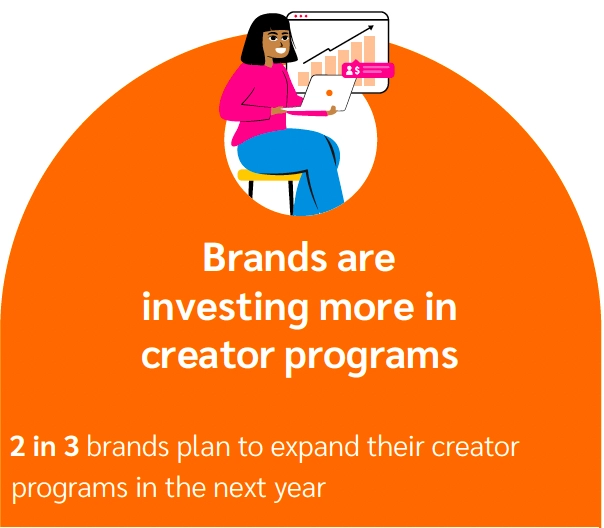
Why compliance matters: Consumers and the FTC demand transparency
Today’s purchase journey starts with trust. When impact.com asked consumers what drives their buying decisions, 57 percent wanted clear visibility into brand-influencer relationships—making transparency ethical and essential for growth.
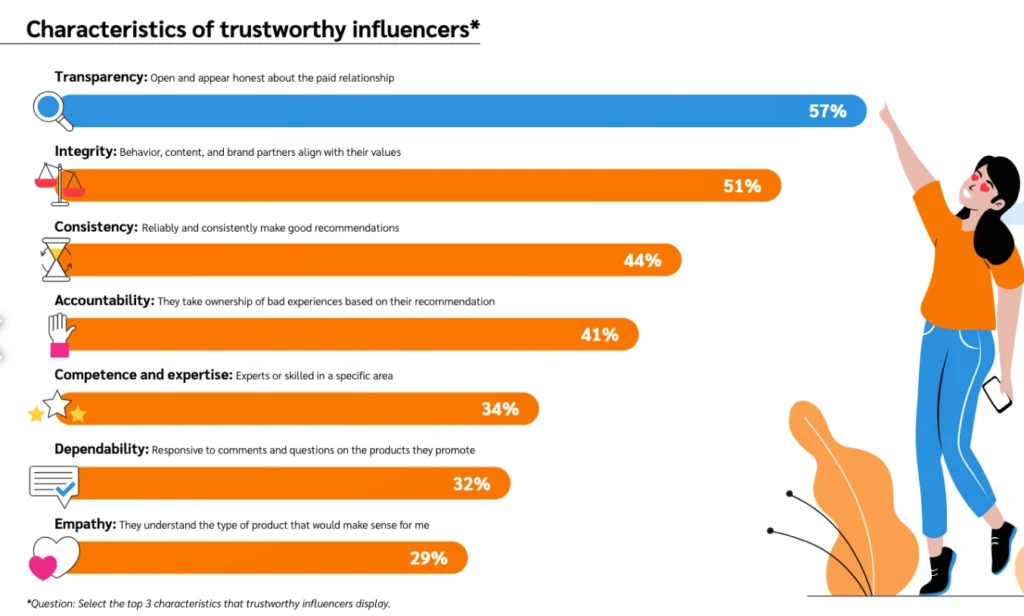
In this excerpt of The state of influencer marketing for consumers in 2023, transparency comes out on top for consumers.
Disguising sponsored content is a losing game. More than half of the viewers surveyed spot it instantly. But brands are flipping the script, using transparent partnerships to transform skeptical observers into engaged advocates.
Complying with regulatory guidelines, such as those set by the Federal Trade Commission (FTC), is key to maintaining trust. When you brief influencers to disclose paid partnerships clearly and consistently, you protect your brand and the influencer from potential legal issues or backlash. You’ll also strengthen your authenticity and credibility with your audience.
Remember, FTC violations don’t just affect influencers—they can significantly impact your brand. Cases involving prominent creators often make headlines, drawing negative attention to everyone involved. Violations can lead to fines of up to $44,000 per incident, a heavy price for something as simple as clear disclosure.
4 challenges brands face with compliance
It isn’t always easy to navigate regulatory compliance, and brands often face various challenges. Below are four common brand compliance challenges:
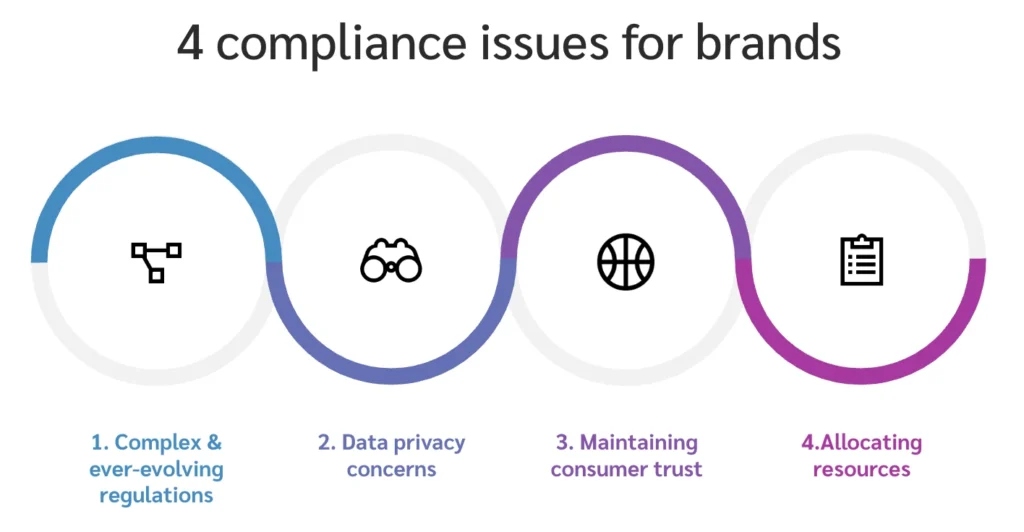
- Complex and ever-evolving regulations: Regulations constantly change at local, national, and international levels. Staying up to date can feel like trying to hit a moving target. Knowing the rules isn’t enough—you must also keep pace with them.
- Data privacy concerns: Data privacy laws including the General Data Protection Regulation (GDPR) in the EU and the California Consumer Privacy Act (CCPA) are in the spotlight, so handling customer data properly is crucial. Brands must be transparent about how they use data and comply with strict privacy standards to avoid fines and legal problems.
- Maintaining consumer trust: Trust is the foundation of any successful brand relationship. If people view your brand as non-compliant or unclear in its disclosures, it could erode trust with consumers who value transparency above all.
- Allocating resources: While enterprise brands can allot a big budget toward compliance tools, smaller companies can still protect themselves. Smart investment in basic compliance now costs far less than a single FTC penalty later.
Adhering to legal guidelines mitigates risk and possible public backlash
What’s worse than an FTC fine? Watching an influencer torpedo your brand’s credibility in real-time. Prevention costs less than reputation repair.
TikTok mega-influencer Mikayla Nogueria collaborated with L’Oreal’s Telescopic Lift mascara. Nogueria did disclose her paid partnership, but viewers alleged she added fake eyelashes off-camera at the end of her video. This misled consumers about the product’s effectiveness. As a result, both Mikayla and L’Oreal experienced significant backlash.

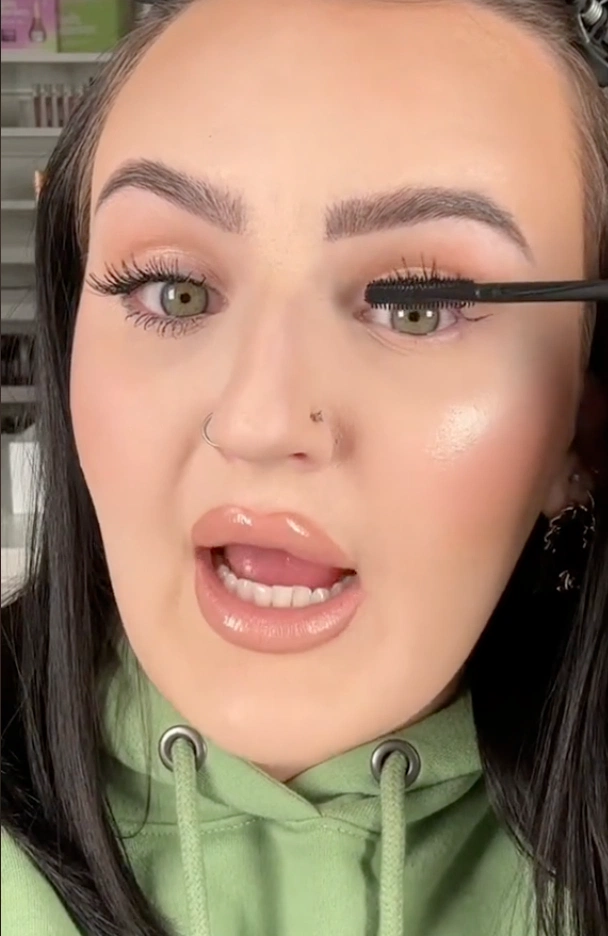
Mikayla Nogueira’s L’Oreal TikTok went viral for all the wrong reasons, sparking major backlash from consumers for its perceived inauthenticity.
Automate compliance workflows and maintain brand-safe content with impact.com
Staying complaint without the right tools can pump the brakes on your productivity. With impact.com/creator, you can automate key compliance standards to keep your influencer campaigns transparent and credible without the heavy lifting.
Here’s how impact.com/creator simplifies the process:
- Tailored and standardized contracts
- Workflow automation
- Social Monitoring
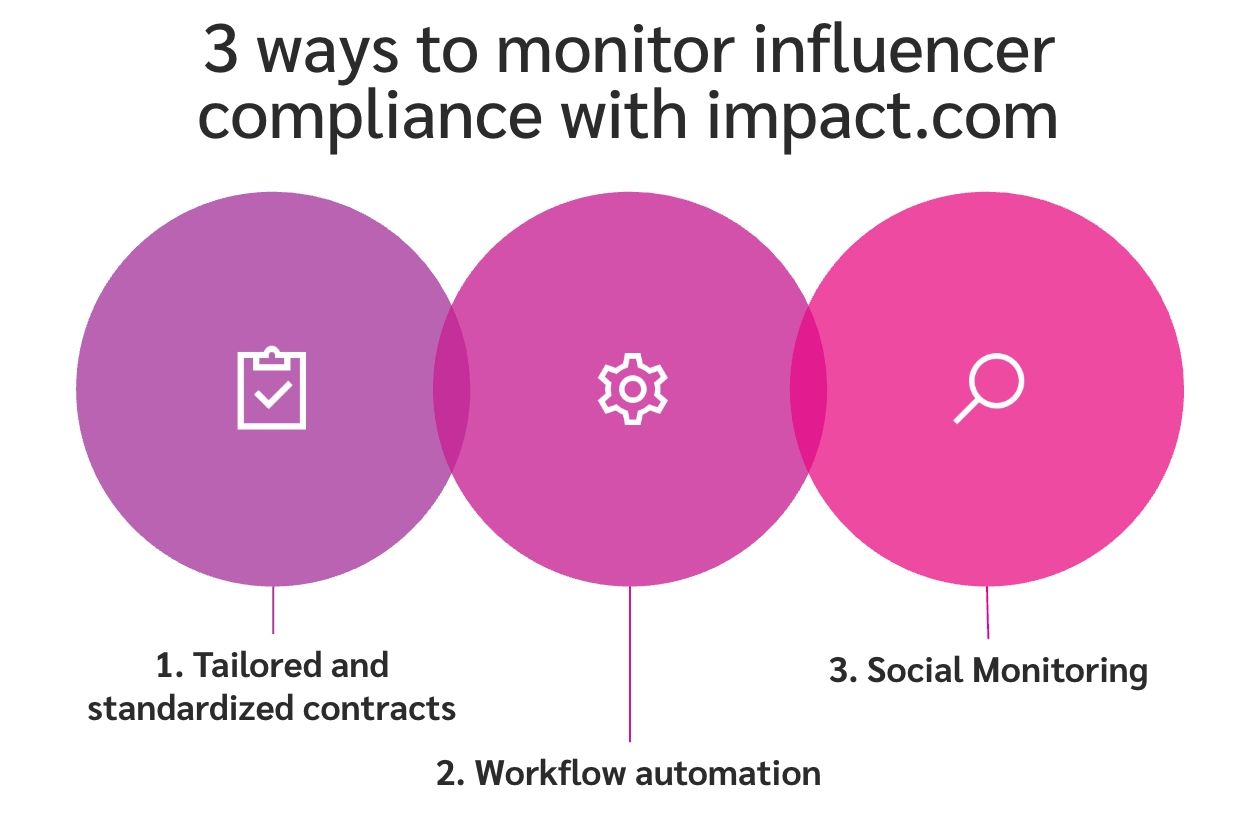
1. Tailored and standardized contracts
Think of contracts as your partnership playbook—impact.com makes writing them a breeze. Start with our battle-tested standard terms, or craft your own custom agreements that fit your brand perfectly.
Got a winning contract formula? Roll it out to your whole creator squad at once, or fine-tune terms for individual partnerships.
Best of all, when everyone knows the game plan from day one, those awkward “but I thought…” conversations become a thing of the past. It’s amazing how clear expectations can turn a one-off campaign into a lasting creative partnership.
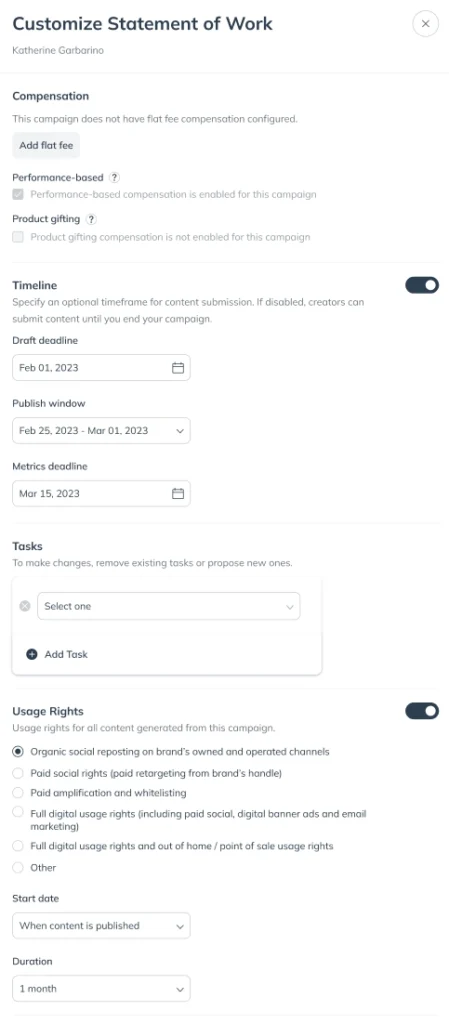
2. Workflow automation
Built-in contract terms set clear rules of engagement from day one—no confusion, no surprises. And campaign briefs clearly outline these terms, strengthening compliance expectations and reducing misunderstandings.
The approval process is refreshingly simple. When creators submit their content, you’ll get an automatic heads-up in your inbox. Jump into the platform to review their work, and either give it the green light or share quick feedback.
Need to bounce ideas back and forth? The built-in messaging keeps your conversations flowing right where you need them, no endless email threads required.
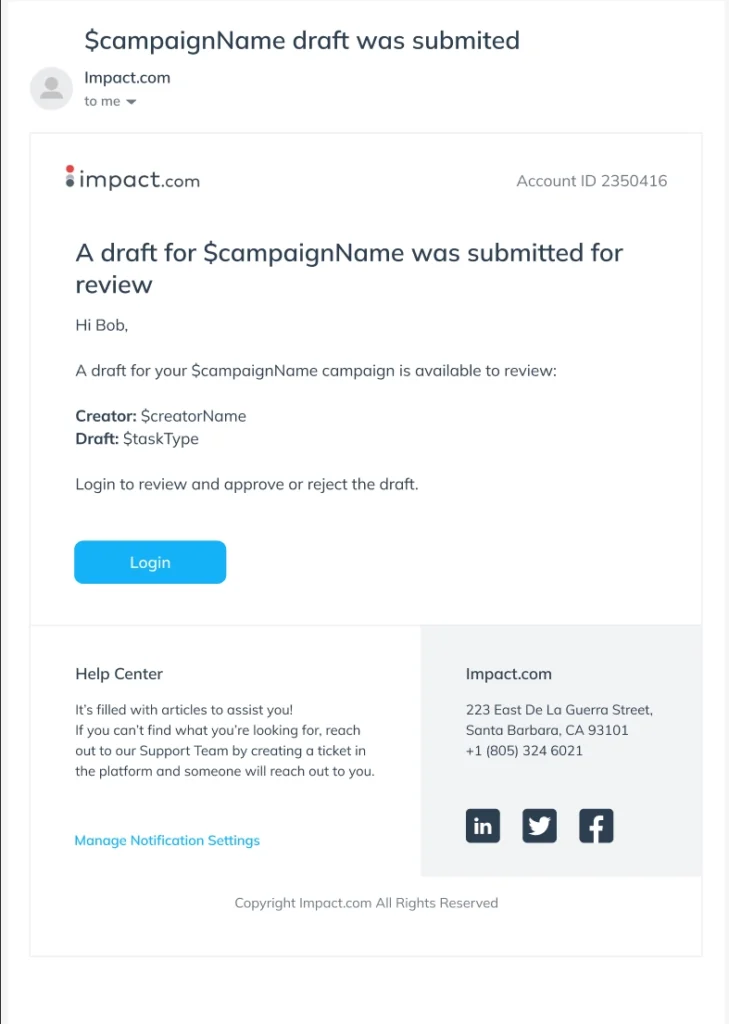
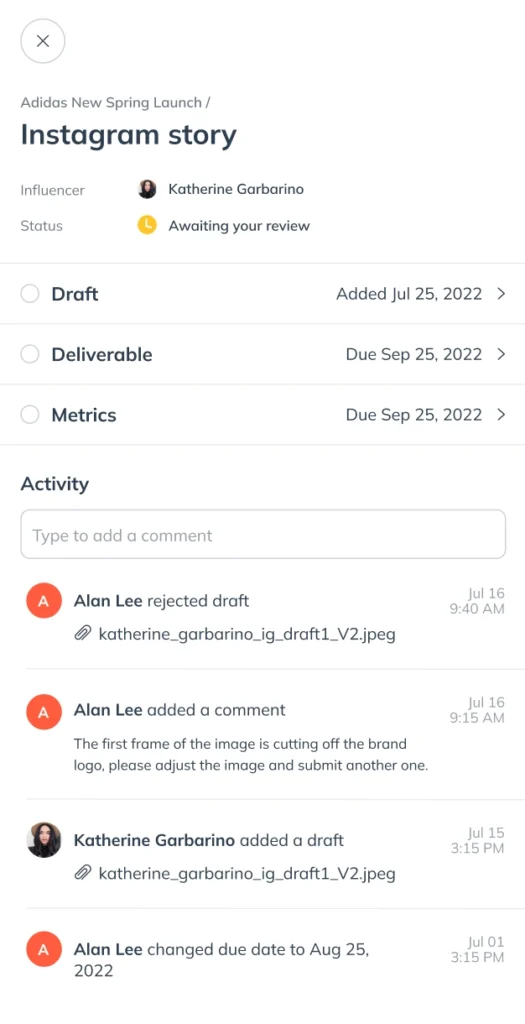
3. Social Monitoring
Let’s talk about protecting your brand’s reputation. While transparent partnerships build trust, keeping track of what every creator posts can feel like herding cats. That’s where impact.com’s Social Monitoring becomes your secret weapon. Think of it as your brand’s safety net, catching everything from promo code usage to social posts in one place.
Instead of frantically searching through social media feeds or hoping creators remember disclosure guidelines, you get a bird’s-eye view of all your partnerships.
Spot a post that needs tweaking? You’ll know instantly. Missing disclosure tags? You’ll catch them before they become problems. It’s like having a dedicated brand guardian working around the clock. Here’s how it works:
- Monitor brand safety: Check that content follows brand guidelines and discloses sponsored posts correctly. This feature helps you maintain transparency and trust throughout your campaigns.
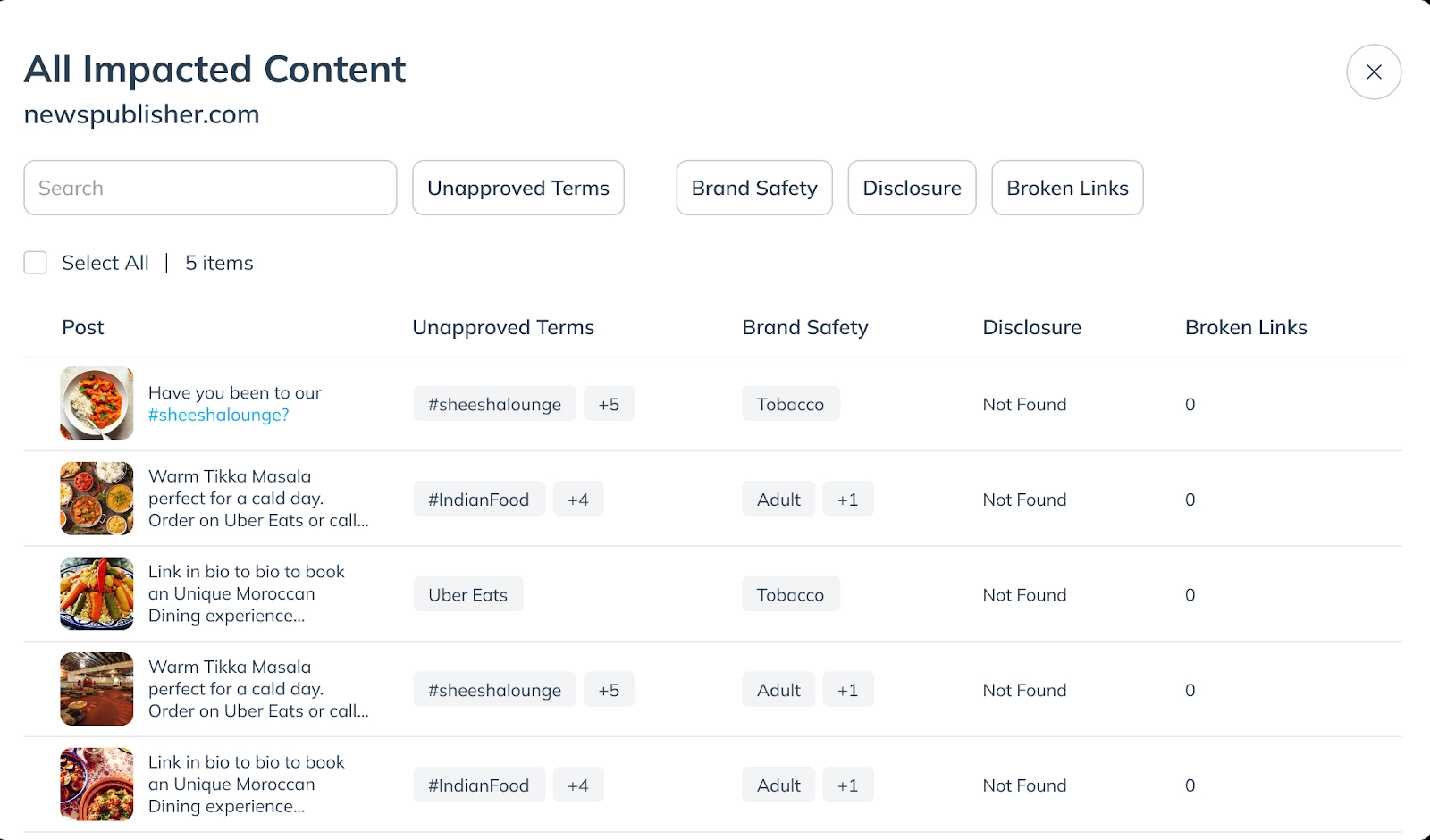
- Resolve compliance issues fast: Message your partners on the Creator platform to address concerns, give feedback, or request content changes.
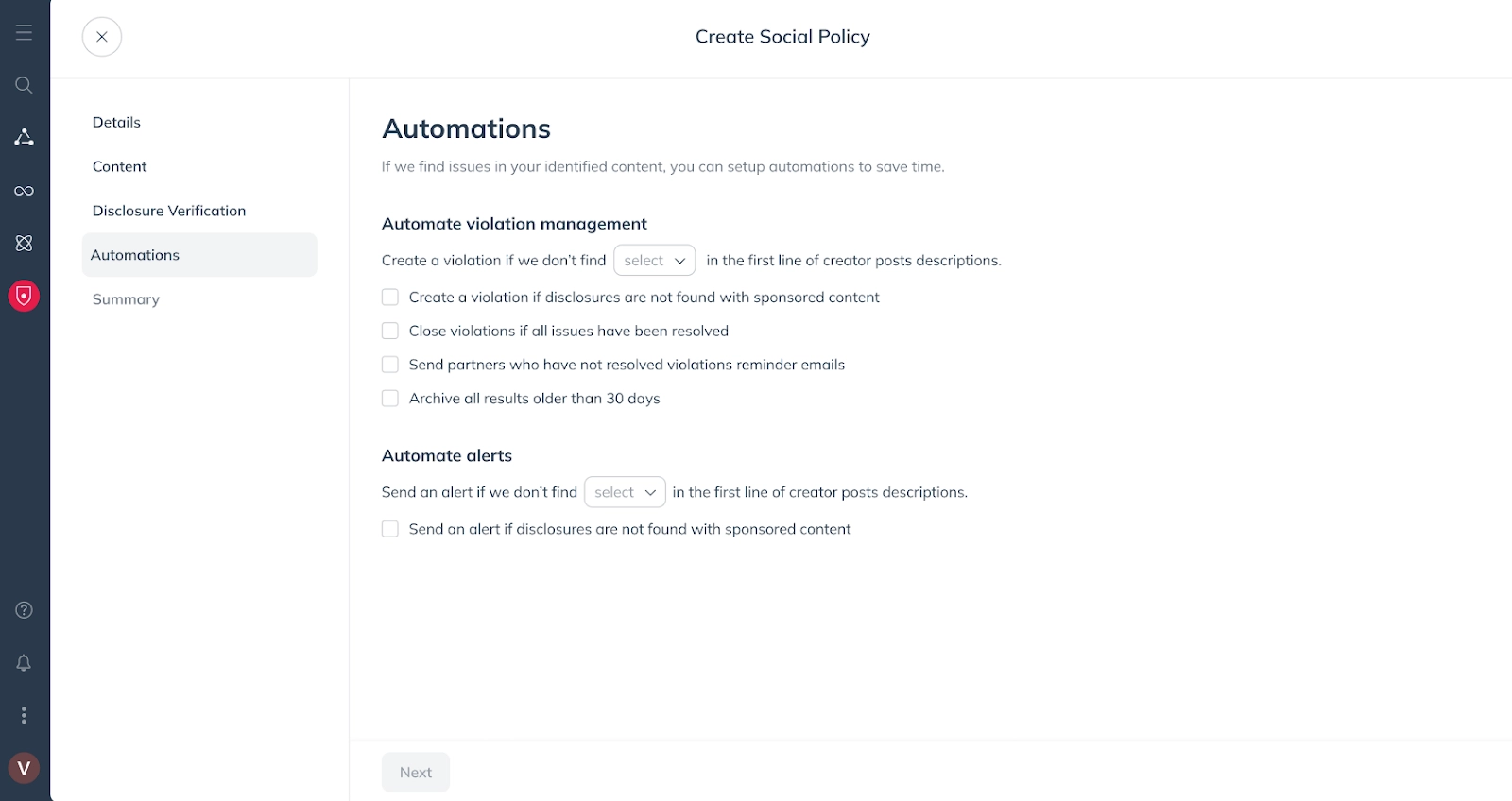
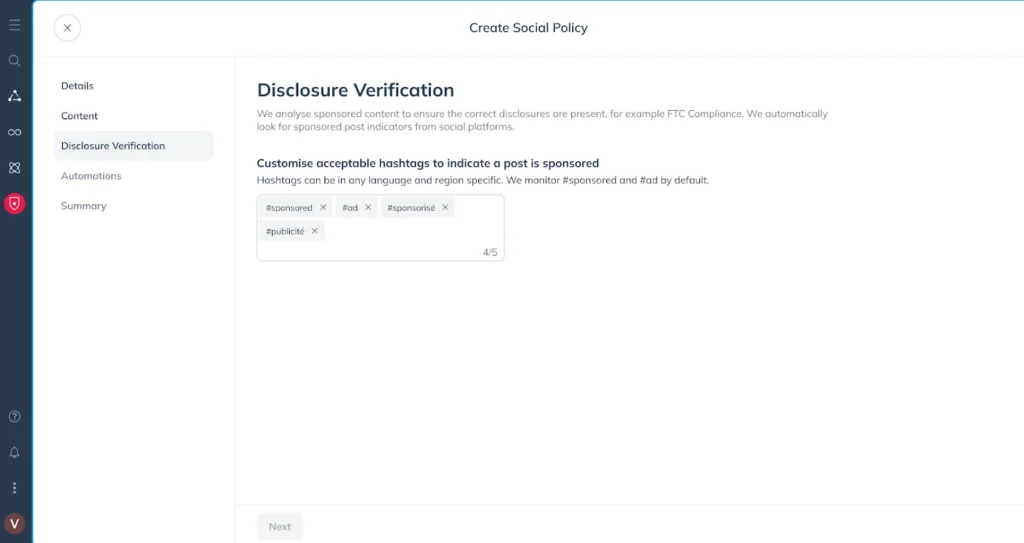
FAQ:
The FTC requires that influencers clearly disclose any paid partnerships, gifts, or incentives they receive from brands. Disclosures must be easy to notice, in simple language, and included where the endorsement appears—such as in the post itself, not buried in a long caption or hidden in a hashtag. The goal is transparency, so audiences know when they’re viewing sponsored content.
Brands can adhere to compliance by setting clear guidelines for influencers, using contracts that specify disclosure requirements, and monitoring content aligning with regulations. To make the process smoother, regularly educate influencers about the rules, review all content before it goes live, and use tools or platforms such as impact.com/creator that automate compliance checks.
Companies track compliance and performance by using tools that monitor influencer content for proper disclosures, brand alignment, and adherence to guidelines. Platforms like impact.com/creator provide robust tracking and detailed reports to make it easier to stay on top of both compliance and campaign success.
Foster long-term trust with audiences and partners with the right compliance tools
At the end of the day, strong compliance isn’t just about dodging legal bullets. You want to build lasting trust. When your brand plays by the rules, everyone wins: your audience feels respected, your creators feel protected, and your legal team sleeps better at night.
And here’s the good news: you don’t need an army of lawyers to keep your partnerships running smoothly. impact.com/creator puts all the tools you need right at your fingertips, from air-tight contracts to workflow automation. Think of it as your brand’s compliance autopilot, helping you focus less on paperwork and more on building those game-changing creator partnerships.
Now’s the time to prioritize transparency, credibility, and legal adherence in your influencer marketing strategy.




